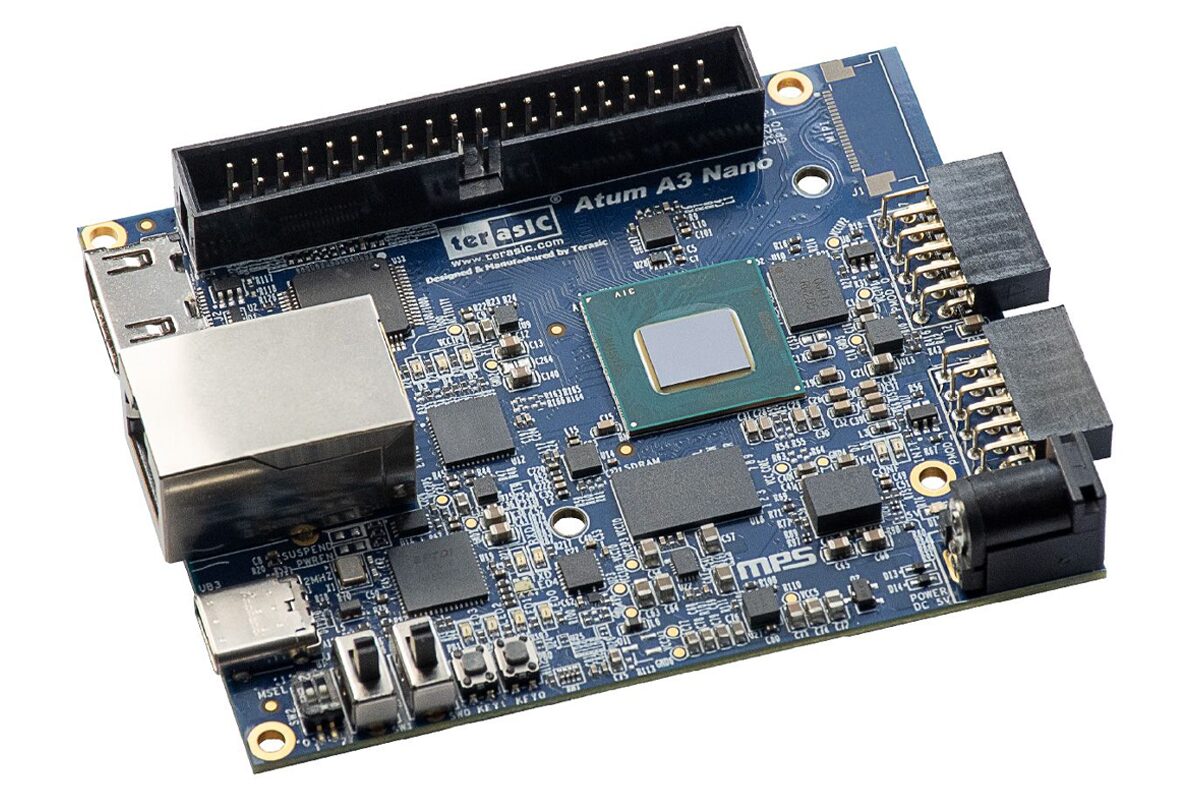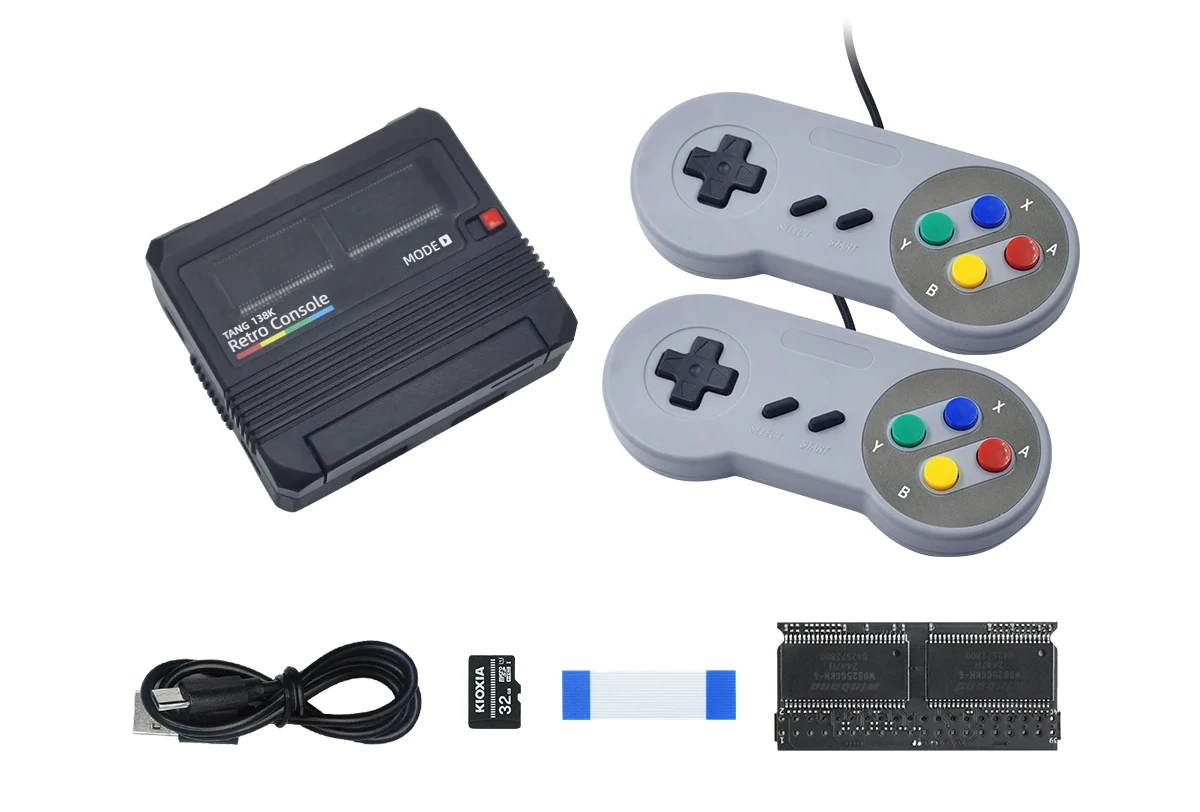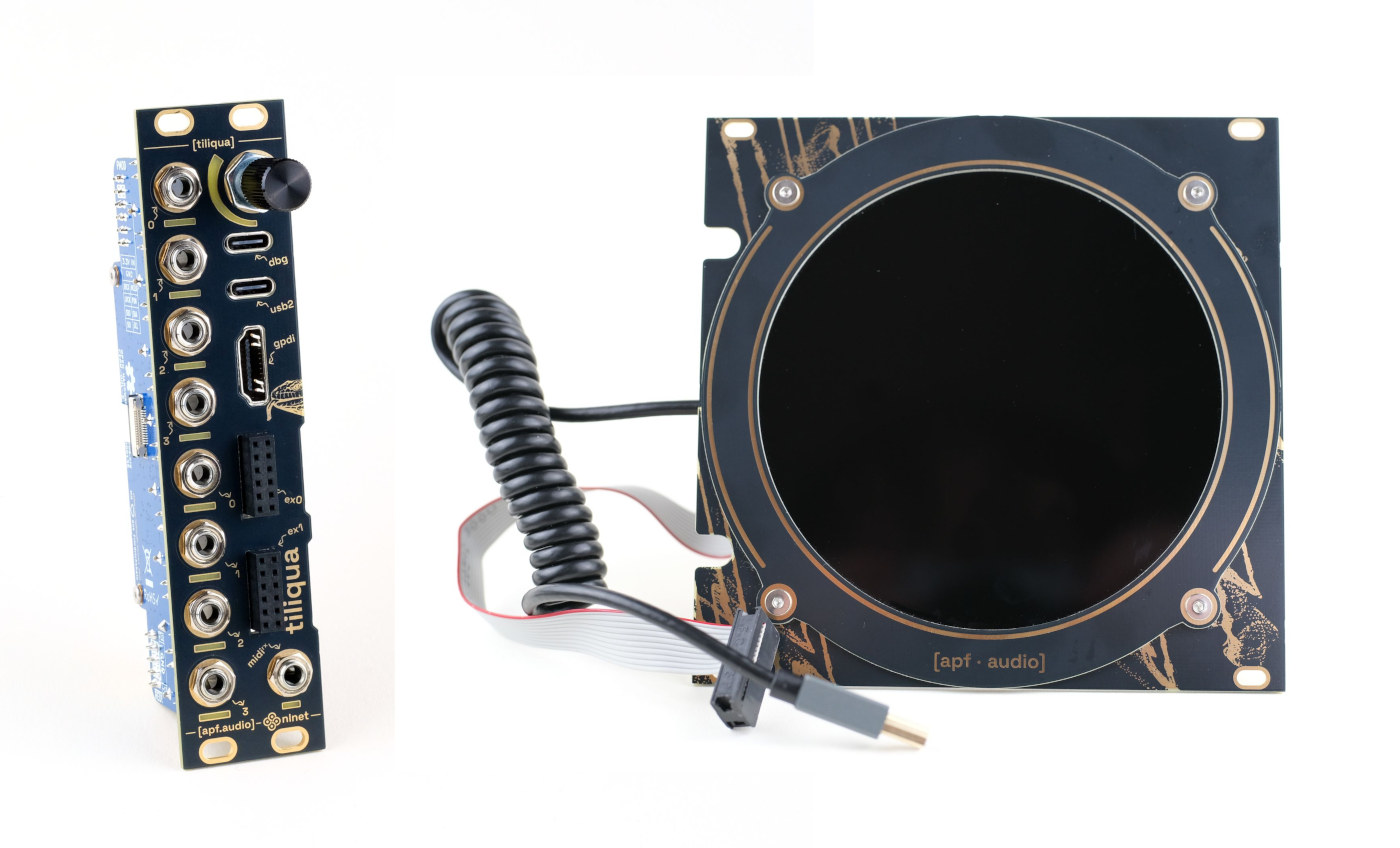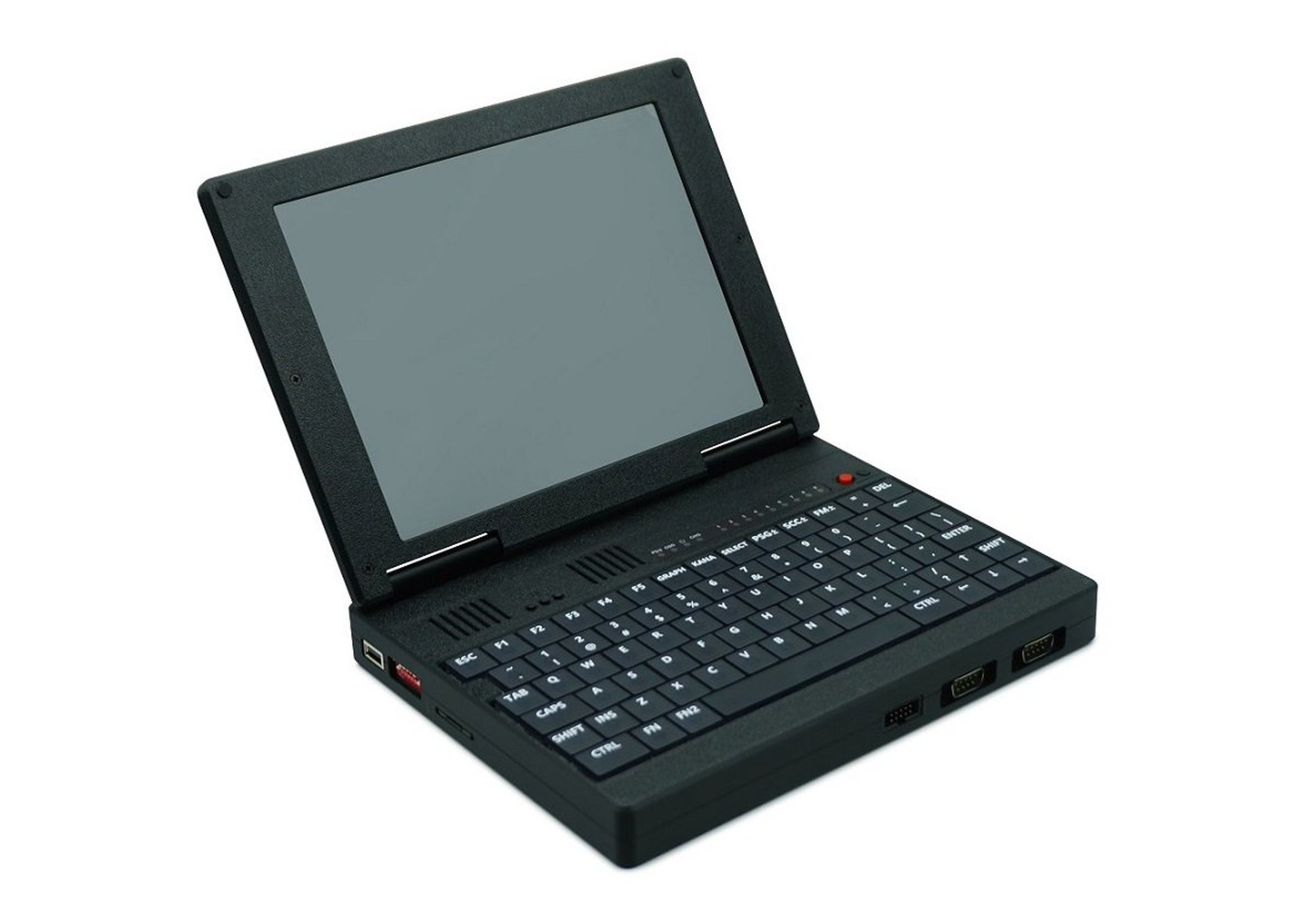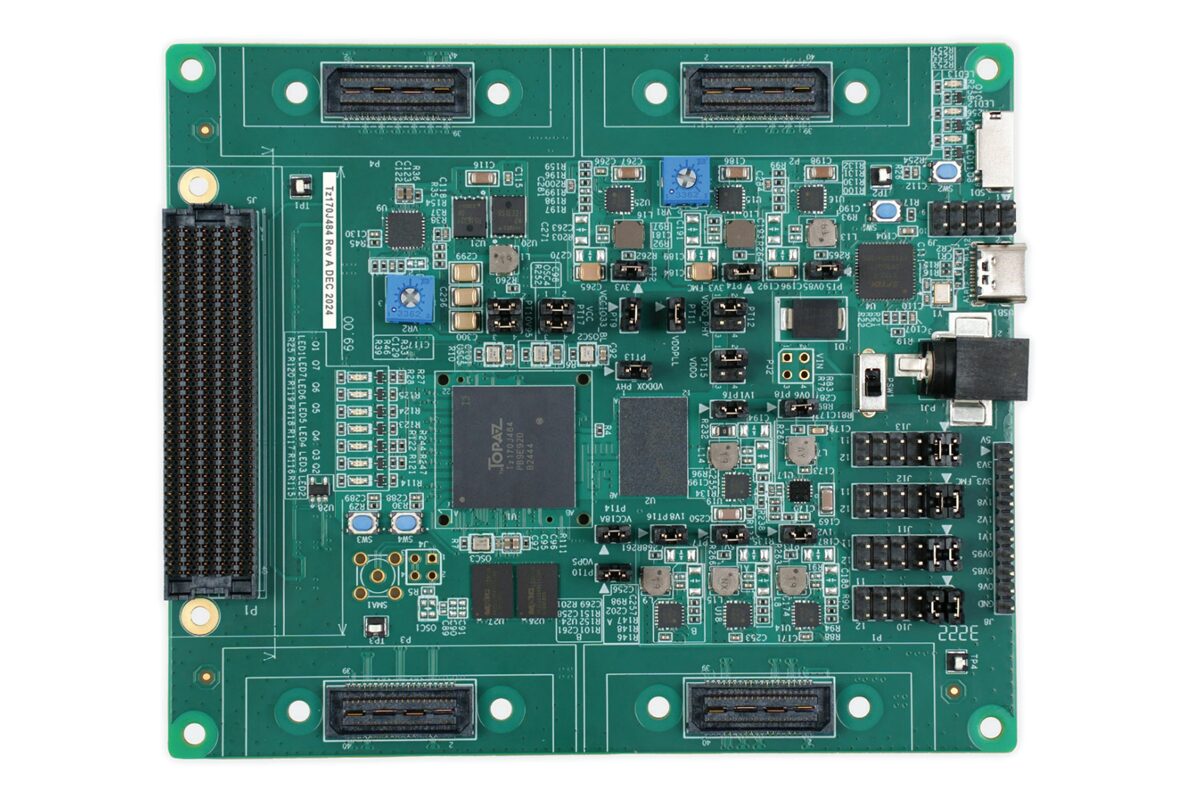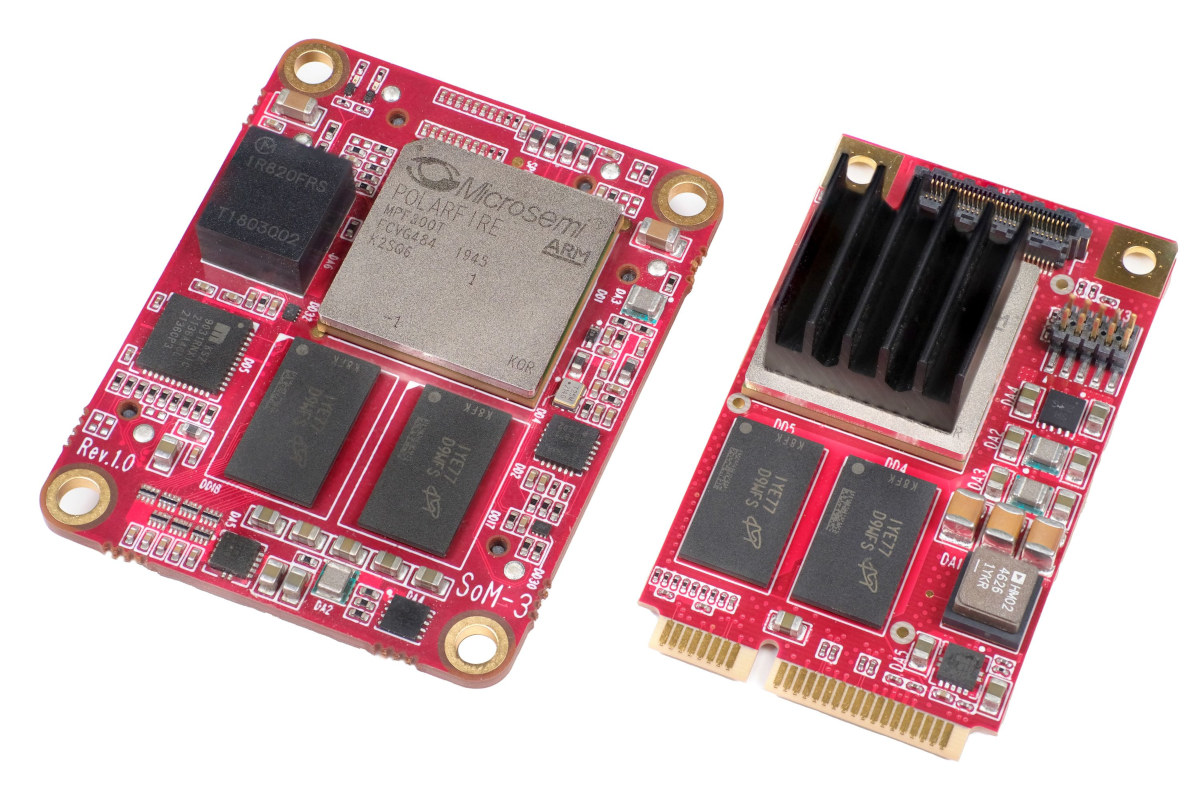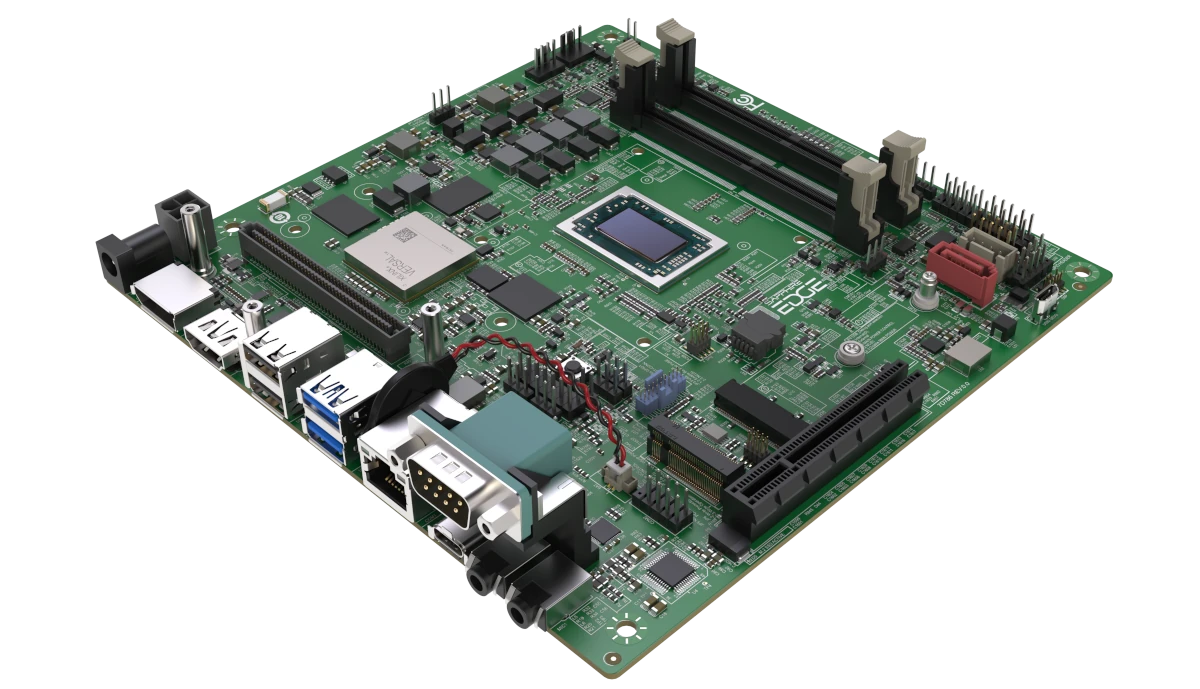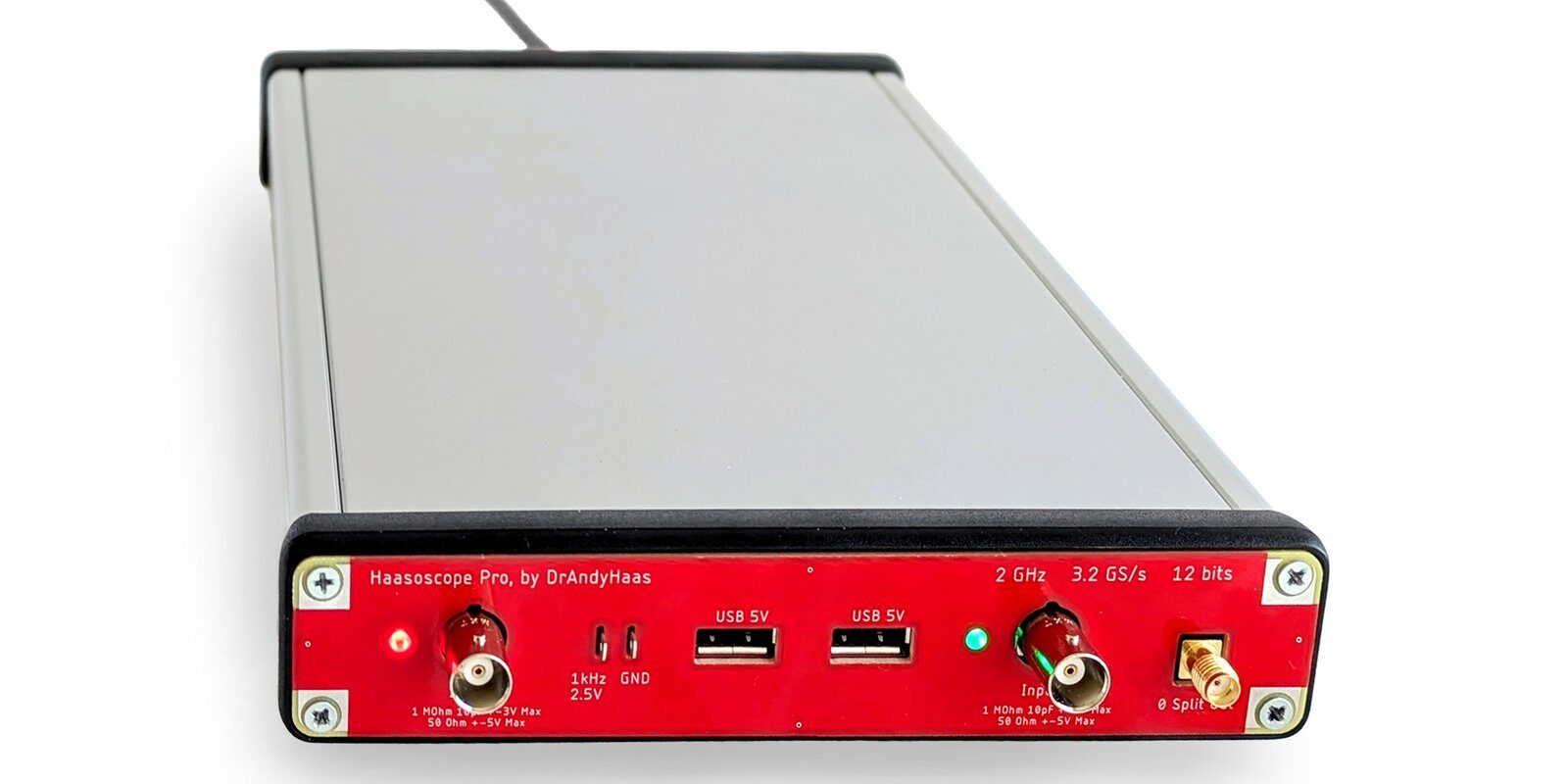Terasic’s Atum A3 Nano is a compact FPGA development board built around Altera’s largest Agilex 3 FPGA (A3CZ135BB18AE7S). The FPGA features 135K logic elements, embedded memory blocks (6.89 Mbit M20K, 1.4 Mbit MLAB), and 368 multipliers, making it suitable for demanding applications such as robotics, automotive systems, smart city infrastructure, consumer electronics, and advanced image processing. Measuring just 85 x 70 mm, the Atum A3 Nano board includes 64 MB SDRAM, Gigabit Ethernet, HDMI output, a microSD card slot, and an onboard USB-Blaster III programmer accessible via a USB Type-C port. Expansion options include a 40-pin GPIO header and two PMOD headers, and the board also features user I/Os like LEDs, buttons, and switches. Additionally, it supports add-ons such as displays, cameras, wireless modules, and motor control kits. Atum A3 Nano specifications: FPGA – Altera Agilex 3 A3CZ135BB18AE7S 135,110 logic elements 6.89 Mbit M20K, 1.4 Mbit MLAB 368 18×19 multipliers 4 I/O […]
Sipeed Tang Console – A GOWIN GW5AST/GW5AT board with 60K or 138K LUT for FPGA development and retro gaming
Sipeed Tang Console is an FPGA development based on GOWIN GW5AST SoC FPGA with 138K LUTs and a hard RISC-V core or GW5AT FPGA with 60K LUTs, designed as a generic FPGA development and retro gaming platform. The Tange Console offers HDMI and RGB LCD display connectors, two USB ports for joystick or other peripherals, and plenty of expansion options with two 40-pin headers for SDRAM, GBA, and custom expansion, two PMOD connectors for joysticks or custom modules, and a 16-pin Raspberry Pi PCIe FFC connector. The “Tang Console” is also integrated into the “Tang Retro Console” as a complete gaming console kit with enclosure, joysticks, and accessories. Sipeed Tang Console specifications: SoM(one or the other) Sipeed Tang Mega 138K SoC FPGA – GOWIN GW5AST-LV138FPG484A with 138,240 LUT4 1,080 Kb Shadow SRAM (SSRAM) 6,120 Kb Block SRAM (BSRAM) Number of BSRAM – 340 298x DSP slices 12x PLLs 16x global […]
Tiliqua – An hackable Lattice ECP5 FPGA-based audio multitool for Eurorack (Crowdfunding)
Tiliqua is a Lattice ECP5 FPGA multitool board designed for audio and visual synthesis and compatible with the Eurorack modular synthesizer format. The board features four audio input jacks and four audio output jacks, all of which can be used as touch-sensitive inputs when not connected. Other interfaces include a USB 2.0 Host/Device port, MIDI support, two PMOD expansion connectors, and a display interface to connect the Tiliqua screen for visual effects. All those features make it suitable for audio-rate modulation, low-latency effects, video synthesis, high-speed USB audio, or emulating retro hardware. Tiliqua specifications: FPGA – Lattice ECP5 (LFE5U-25F-6BG256) FPGA supported by the open-source FPGA flow System Memory – 32MB PSRAM (tested up to 200MHz DDR / 400MB/s) Storage 16MB SPI flash for the FPGA 16MB SPI flash for the Raspberry Pi RP2040 2Kbit I2C EEPROM: for storing calibration constants Video Output – Digital video GPDI (General Purpose Differential Interface) […]
OneChipBook-12 is a Cyclone EP1C12Q FPGA development platform with a built-in display and mechanical keyboard
It may look like a netbook from 10 years ago, but the OneChipBook-12 from “8086YES!” is instead an Altera Cyclone EP1C12Q FPGA development platform with a VGA display (LCD form iPad 2), a PS/2 QWERTY mechanical keyboard, a battery, and a few ports. While the OneChipBook-12 is sold as a blank FPGA development platform “with no predefined functionalities”, the hardware is similar to One Chip MSX (1chipMSX), Zemmix Neo, and uMSX systems, which are modern MSX2+ clones, and that’s the main reason people are purchasing the device. OneChipBook-12 specifications: FPGA Altera Cyclone EP1C12Q240 (from the obsolete Cyclone I family) 12,060 LEs 239,616 bits RAM System Memory – 32MB SDRAM Storage – SD card slot (FAT16 file system supported) Display – 1024×768 VGA display Video Output – VGA, S-Video, and CVBS Output interface Audio – Stereo speakers, audio output jack (8), volume control knob (9) USB – USB Type-A port […]
Topaz Tz170b FPGA devkit features hardened LPDDR4 controller, hardened MIPI D-PHY up to 2 Gbps per lane
The Topaz Tz170b FPGA devkit from Efinix is a compact FPGA evaluation platform built around the Efinix Tz170 FPGA. This FPGA is built around a low-power, high-density 16 nm Quantum fabric and comes in a compact 484-ball FineLine BGA package. The company mentions that the board supports hardware-level MIPI D-PHY with data rates of up to 2 Gbps per lane and hardware-level LPDDR4 memory controller, making it ideal for high-speed embedded systems, vision processing, and custom SoC designs. Additionally, it includes 256 Mbit of LPDDR4 memory, dual SPI NOR flash memories, and high-speed QSE connectors for Efinix or custom daughter cards. Expansion is further enabled by a low-pin-count FMC connector, a microSD slot, user LEDs, and push buttons. Clock options include 33.33, 50, and 74.25 MHz oscillators, and a full range of onboard regulated power sources for stable operations. These features make this device useful for applications like edge AI, […]
TinyBeast FPGA – A Microchip PolarFire MPF300T/MPF100T FPGA PCIe reference design (Crowdfunding)
TinyBeast FPGA is a compact module based on Microchip PolarFire MPF100T or MPF300T FPGA with up to 300K logic elements and a hard PCIe interface that is suitable for automation, measurement, and robotics applications. Two versions of the module are available: the TinyBeast FPGA P mini PCIe module designed for integration with embedded systems, and the TinyBeast FPGA S with B2B connectors designed to be connected to a carrier board. TinyBeast FPGA P TinyBeast FPGA P specifications: FPGA – Microchip PolarFire FPGA TinyBest FPGA P-300 – MPF300T-1FCVG484E FPGA with 300K LE, 10.6 Mbit embedded RAM, 924 DSP blocks TinyBest FPGA P-100 – 100K LE, 5.2 Mbit embedded RAM, 288 DSP blocks System Memory – 4 GB DDR4 memory Storage – SPI flash Host interface – PCIe x1 Gen2 as EP via mini PCIe edge connector Expansion – Samtec SS4-30-3.00-L-D-K I/O connector for GPIOs and up to 12.7 Gbps transceivers Debugging […]
Sapphire Edge+ VPR-5050 “AMD Embedded+” mini-ITX motherboard combines AMD Ryzen V2748 CPU and Versal AI Edge VE2302 SoC FPGA
Right in time for Embedded World 2025, Sapphire Technology has introduced the Edge+ VPR-5050 “AMD Embedded+” mini-ITX motherboard with AMD Ryzen V2748 octa-core CPU, and AMD Versal AI Edge VE2302 adaptive SoC that combines Cortex-A72 hard core with FPGA fabric. It’s an update to last year’s VPR-4616-MB mini-ITX motherboard with the same Versal VE2302 adaptive SoC, but a lower end AMD Ryzen R2314 quad-core processor. Two versions of the Edge+ VPR-5050 are available: the VPR-5050-MB and VPR-5050A-MB with the only obvious difference from the specifications being a 64GB eMMC flash on the “A” model, and the different RAM capacities (2x 4GB LPDDR4 vs 2x 8GB LPDDR4). Sapphire Edge+ VPR-5050 specifications: AMD Embedded+ Architecture Adaptive SoC Subsystem Main IC – AMD Versal AI Edge VE2302 with dual Arm Cortex-A72 core processor @ up to 1.6 GHz, dual-core Arm Cortex-R5F, 23 TOPS AI engine, FPGA fabric, etc… System Memory VPR-5050-MB – 2x […]
Haasoscope Pro open-source, real-time sampling USB oscilloscope supports up to 2GHz bandwidth (Crowdfunding)
The Haasoscope Pro is an open-source hardware, high-bandwidth, and real-time sampling USB oscilloscope. Building upon its predecessor, the Haasoscope, the new Pro model offers a bandwidth of 2GHz, 12-bit resolution, and a 3.2GS/s sampling rate. The Haasoscope Pro USB oscilloscope is “designed to be low cost, while maintaining super-fast performance.” While it only comes with 2 channels, the flexible design makes it possible to combine and sync multiple devices (using Cat5 cables) to double the sample rate or add more channels. The oscilloscope works with standard x10 passive probes but a custom active probe, the Haasoscope Pro-be, is also offered. It supports the full 2GHz analog bandwidth and is priced much cheaper than similar probes. The Haasoscope Pro USB oscilloscope’s high sampling rate and bandwidth make it ideal for radio frequency signal analysis and high-speed digital debugging. It is similar to the ThunderScope Thunderbolt and PCIe oscilloscope which offers more […]


